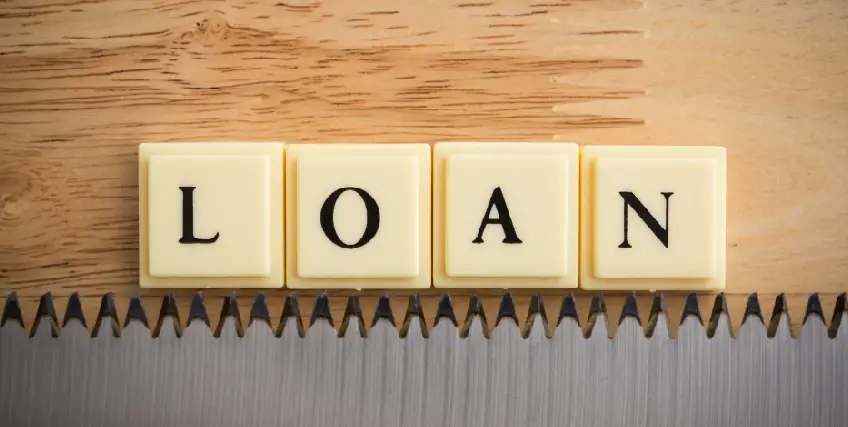Is a small business loan from a bank secured or unsecured?
February 19, 2025 | Last Updated on: February 19, 2025

Many small businesses will eventually need an influx of capital. Whether it’s to take advantage of a business opportunity, invest in growth, or navigate financial challenges, small business financing is an invaluable resource to small business owners. However, it’s important to understand the fine points of small business lending.
When you get a small business loan, it will be either secured or unsecured. A secured loan requires a borrower to provide collateral, usually in the form of a business asset like equipment, accounts receivable, or real estate. If you default on the loan, the lender may seize the collateral as repayment for the loan. An unsecured business loan doesn’, but it will likely require a personal guarantee. This allows a lender to pursue your personal assets if you fail to repay the loan.
There are pros and cons to both secured loans and unsecured loans, but it’s important to understand the differences. Your business may not be eligible for all types of loans and lenders may have significantly different terms for unsecured or secured loans.
In this article:
- The differences between unsecured and secured lending.
- Pros and cons of collateral loans and unsecured loans.
- A look at the best places for business loans.
What’s the difference between secured loans and unsecured small business loans?
Let’s take a look at some of the key differences between secured and unsecured small business loans.
Secured loans
As we touched on in the introduction, the primary difference is in the name. Secured loans are secured by collateral. A borrower offers business assets like equipment, inventory, or real estate that the lender may seize if the borrower fails to repay the loan. You could also get a cash secured loan using the value of cash savings or certificates of deposit (CDs). Some lenders may require that you still provide a personal guarantee that allows them to pursue personal assets if the seized collateral is not enough to satisfy the remaining loan balance.
Lenders generally prefer secured loan products because the collateral provides something of value they can sell to recoup losses from a defaulted loan. Secured business loans offset some of the risk to lenders, which also allows them to offer lower interest rates and more favorable repayment terms to businesses. Secured lending often offers the best loan terms if you’re looking for a small business loan.
Both traditional lenders and online lenders offer collateral loans in a variety of types. Some of the most common secured loan options include term loans, working capital loans, Small Business Administration (SBA) loans, and business lines of credit.
Pros of secured loans
- Usually have lower interest rates than unsecured small business loans
- Usually offer higher borrowing limits
- Typically, easier to qualify for
- Often have a longer repayment period than unsecured small business loans
Cons of secured loans
- Require collateral, which may be seized by the lender if you fail to repay the small business loan
- Typically take longer to fund due to a collateral appraisal
Unsecured business loans
Unsecured business loans are not backed by specific collateral, meaning the lender may not seize a specific asset if you default on the loan. The loan is unsecured. However, that doesn’t mean you can default without consequences.
Most unsecured loans are still backed by a personal guarantee or Uniform Commercial Code (UCC) lien. A personal guarantee holds you personally responsible for the debt if your business cannot pay it back. That means the lender may seize your personal assets to cover the remaining loan amount.
A UCC lien is an official statement filed with your business state’s secretary of state after signing a business loan agreement. Depending on the terms of the agreement, it may place a lien on specific business assets or a blanket lien across all your assets that allows the lender to seize assets to recoup assets if you default on the loan.
Both traditional and online lenders offer unsecured loans. If you can qualify for an unsecured loan without collateral, these loans tend to be funded faster because there are fewer approvals and no appraisal of collateral. While you can get easy unsecured loans, you typically must meet strict eligibility requirements including a high personal or business credit score, multiple years in business, and strong annual revenues.
You can use unsecured small business loans for a range of business needs, and some of the most common funding options include term loans, SBA loans, business lines of credit, and (MCAs).
Pros of unsecured business loans
- Don’t require business collateral
- Often offer faster funding due to no appraisal process
- Often offer a fast application process
Cons of unsecured loans
- Still require a personal guarantee, which may expose your personal assets to seizure
- Often have higher interest rates and loan fees
- Can be harder to qualify for
- Usually have lower loan amounts than secured small business loans
- Often have stricter repayment terms and lower loan amounts
Should I get a secured loan or unsecured loan?
s and unsecured loans often function in very similar ways. With a basic term loan, you’ll get a lump sum payment into your business bank account that you’ll have to repay with monthly payments. There are differences in the application process and the repayment terms, but ultimately, you’re still repaying funds that are provided upfront.
Based on the differences, there are some instances where unsecured small business loans make more sense and others when secured loans make more sense.
You should consider an unsecured small business loan if:
- You can’t meet collateral requirements or are not willing to risk losing business assets. You still must be willing to provide a personal guarantee and risk exposing your personal assets.
- You need cash flow fast and can’t wait for a collateral appraisal.
- Your creditworthiness is excellent, and your business is profitable. In such cases, the lender’s risk is lower despite not having any type of collateral.
- You need short-term financing and are willing to accept higher fixed rates and shorter repayment terms due to an expected increase in revenue.
You should consider a secured small business loan if:
- You need startup funds for a new business.
- You need a very large loan amount and longer repayment terms. If you have good credit and strong financial statements, secured loans can offer the most competitive interest rates.
- You have bad credit and cannot qualify for an unsecured small business loan.
- You have an existing relationship with a lender and strong business finances to lock in the best loan terms possible.
Some business owners may qualify for both types of small business loan. In these cases, you’ll have to weigh the pros and cons of each related to your specific business needs. If you just need a quick influx of cash and can repay it quickly, it may make sense to get out of debt faster with an unsecured loan. If you’re interested in making a large, long-term investment in your company, a secured loan can be a better option.
If you’re unsure, it may be best to consult a financial adviser or other financial professional.
Final thoughts
Whether you need working capital or are ready to expand your business, both unsecured small business loans and secured loans can help you reach your business goals. Each type of financing offers different advantages and drawbacks, and it’s vital to understand how they work.
The right type of loan for your business depends on your creditworthiness, available forms of collateral, and the loan terms you’re looking to get. Before you choose a lender, always explore the financing options available to you, from term loans to business credit cards, and make sure you’re completely comfortable with the terms.
FAQs on small business loans
What’s the difference between secured loans and unsecured loans?
There are a few key differences between secured loans and unsecured ones, but the biggest is the presence of collateral. Secured loans require a borrower to put up business assets as collateral that the lender may seize if they default on the loan. Unsecured loans don’t require collateral, but they will likely still require a personal guarantee for the funds.
What kinds of small business loans are secured or unsecured?
Most types of loans can be secured or unsecured, from term loans and to business lines of credit and business credit cards. Generally, secured loans offer lower interest rates and better loan terms because there is less risk to lenders.
What are the pros and cons of secured loans?
Secured loans can offer lower interest rates, longer repayment terms, and larger loan amounts. However, they typically take longer to fund due to the need to appraise collateral and they expose business assets to potential seizure if you fail to repay the loan.
What’s the best place for business loans?
It really depends on your situation. While the best banks for business loans will offer competitive interest rates and loan terms, your eligibility for the best terms completely depends on your loan application. If you have bad credit or are a brand-new business, you might find that online lenders offer better terms than traditional ones. It’s important to do your research and seek pre-approval for loans to understand what your business might be eligible to receive.
How do you get a small business loan?
To get a small business loan, you must first determine how you’ll use the funding. This is an important part of your loan application because you must show in your business plan how the money will address certain business needs and goals. From there, research and compare lenders to find the right loan products for you, gather documentation like tax returns and financial statements, and apply for the loan.




